In Honor of a 21st Century American Christian Martyr
Charlie Kirk’s senseless murder has left so many of us stunned and angry. To some, he was the political commentator they watched debate college students. To others, he was the man who restored integrity to the electoral process in the presidential election. To millions of young American men, especially young Christian men, he was a role model.
To two young children, he was simply “Dad.” To his wife Erika, he was a husband.
Charlie Kirk was able to manage all these aspects of his life without faking it or pretending to be something he wasn’t. He was competent, sharp, loving, and virtuous. His friends and family spoke highly of him and lived his life without scandal. In a world full of people trying to be everything to everyone, Charlie Kirk just was who he was.
It’s remarkable how rare that really is, especially in politics. So many public figures feel like they’re wearing masks, switching between their “real” selves and their public personas. So many brands don’t ever really transcend talking points, no matter how true they are.
Charlie never came across that way. The man who debated on college campuses and flew on Air Force One with President Trump was the same guy who hugged his kids offstage after a Fox News hit. The same convictions that drove his political work showed up in how he treated his family, his friends, and even people who strongly disagreed with him.
The Foundation: Charlie as a Family Man
Charlie Kirk was a family man. In fact, one could argue that the biggest motivation for the work he did in improving American life was for the sake of the family.
In one recent talk, Kirk said, “The American way of life is very simple. I want to be able to get married, buy a home, have kids, allow them to ride their bike till the sun goes down, send them to a good school, have a low crime neighborhood…”
The American way of life, therefore, is oriented toward the family. Every time he set foot on a college campus, he was thinking of the family. Every time he spoke on stage or engaged in debate, he was ultimately defending the right of families to flourish without fear of government overreach or cultural decay. Every time he called young people to pursue truth and virtue, he was thinking of the family. He was thinking about his family.
The people who knew Charlie best spoke highly of him in relation to his family, witnessing him cutting interviews short for his kids. The way he looked at his wife from across the room or when walking into an event. None of this was performance. Charlie Kirk really believed that how you treat the people closest to you reveals everything about your character. He used to say that if he couldn’t love his own family well, what business did he have trying to fix the country?
That perspective shaped everything he did in public life. His political vision wasn’t some abstract theory he’d cooked up—it was rooted in wanting his kids to grow up in a place where faith and family and basic decency still mattered. You could see it in how he approached even the most significant issues: this wasn’t about winning points or building a brand. It was personal. It was ultimately driven by love.
Faith That Actually Shaped Things
Charlie Kirk’s Protestant Christian faith wasn’t the kind you see on campaign flyers, trotted out when convenient, tucked away when awkward. He wore his faith on his vest. It was not something he was shy about. Kirk believed that Christ was the exclusive way to be reconciled to God. He believed that Christ defeated death and is king, and that we can be free from sin and death through Him. It shaped how he argued, how he treated his opponents, how he spent his money, and how he raised his kids, among other things.
Of course, this made some people uncomfortable, including some Christians. In an age when many believers prefer to keep their faith private or where being winsome is far more appealing than being bold, Charlie insisted that real faith impacts everything, including politics. He wasn’t obnoxious about it. But he also wasn’t going to pretend that following Jesus was a mere private matter, or that his faith was somehow in conflict with his political goals and love for his country.
Indeed, Kirk showed a general boldness that is often missing among Christians, including pastors, as Josh Daws recently pointed out. The Left didn’t hate Kirk because he was a “jerk” (he wasn’t) or even merely because of his political convictions; he was also hated because Christ told his disciples that as the world hated Him, they would also hate those who follow him.
Charlie Kirk never wavered on what he believed was true, but he also never forgot that the people who disagreed with him were human beings made in God’s image. That’s not as easy as it sounds, especially when those people are calling you names on Twitter.
His bold faith also had a massive influence on young men. As my friend and pastor Jeff Wright said, “Charlie Kirk is as responsible for the revival of Christianity among young men as any human figure.” American conservative social media activist Robby Starbuck told Fox News Digital that Kirk was a man of unwavering faith. Starbuck, who has known him “a long time,” said, “Aside from being a father, perhaps Charlie’s greatest achievement is talking about God to young people during a time when too many were afraid to do that. The result has been a revival on college campuses all over the nation. It’s our responsibility to carry on his work now.”
Will Witt also told Fox that Charlie was one of the most godly men I knew, and he had a bold and courageous faith. [Charlie] had a faith that wasn’t just the moderate and normal faith you see from most, but a steadfast, brilliant, and strong belief that inspired everyone around him.”
There is no question that one of Kirk’s most significant legacies will be found in the countless young men who realized that the Christian faith and courage can coexist, despite what Big Eva might say.
A Different Kind of Political Leader
The Center for Baptist Leadership Director William Wolfe made an astute point, saying, “Charlie Kirk—more than anyone else in America on the right or the left—built his platform making a good faith effort to model civil political discourse and debate in the public square. His entire project was built on reaching across the divide and using speech, not violence, to address and resolve the issues!”
In a climate that constantly emphasizes the need for a “conversation,” Kirk was by far the best example of this. While everyone else was perfecting their attack lines, Charlie Kirk was on college campuses trying to have honest conversations with people who mostly thought he was wrong about everything. It was remarkable watching Kirk in these live debates. Kirk was never demeaning and always gave his opponents room to talk. He came with facts and logic, was confident without being cocky. Kirk was strategic, of course, knowing full well that college campuses are breeding grounds for leftist ideology that fosters contempt for the good, the true, and the beautiful. What better place to reach young people where they’re being indoctrinated by anti-American sentiment?
The point is, though, that Charlie Kirk believed in the need for dialogue, even among those who disagreed. To paraphrase something he’s said before, when we stop talking, that’s when the violence starts. In a political order where people are screaming at each other across the aisle, Kirk sought to model a reasoned and engaging approach that, while not necessarily united, at least preserved mutual respect, human dignity, and the possibility of understanding. He never lost his temper, never resorted to cheap shots, never treated his opponents like they were stupid.
He just kept making his case, calmly and respectfully, trusting that truth could handle the scrutiny. And they killed him for it.
Building Something That Lasted
Charlie Kirk started Turning Point USA when most people his age were figuring out their college majors. By the time he died, he’d built one of the most influential conservative organizations in the country, one that changed America forever after the 2024 election. But what’s remarkable isn’t just that he did it so young, it’s that he did it with such clear purpose.
Charlie Kirk wasn’t interested in power for its own sake. He wasn’t trying to get rich or famous (though both happened anyway). He saw politics as a tool for protecting the things he cared about: faith, family, freedom. His success in the political arena mattered to him only insofar as it served those deeper purposes.
This is what separated Charlie Kirk from so many other political figures. He had skin in the game in a way that went beyond career advancement. The country he was fighting for was the one where his children would grow up. The culture he was defending was the one that had shaped him. It wasn’t theoretical.
What He Leaves Behind
Charlie Kirk’s death feels especially painful because of how much he still had to give. He was young, he was growing in influence, he had plans. According to his friend Michael Knowles, many believed he would become President someday. But maybe that’s the wrong way to think about it.
Perhaps the better question is: What did he show us about how to live?
He showed us that you can be deeply principled without being cruel or cowardly. That you can love your family and serve your country, and follow your faith all at the same time.
Most of all, Charlie Kirk showed us that even politics can be about love—love for faith, love for family, love for country, love for truth. That vision feels almost quaint in our current moment, but Charlie Kirk proved it was possible.
Moving Forward
I don’t know what happens next. The movement Charlie Kirk built will continue, but movements aren’t the same as the people who lead them. Kirk will be remembered in a long line of great men who were killed too soon, whose movements and influence only grew after their deaths. I suspect this will be the case, and that we’ll, Lord willing, see a shift.
A martyr is often more influential after his death.
What I do know is that Charlie Kirk would want us to keep moving. Keep going. Don’t quit. Don’t give in to fear.
The things worth fighting for don’t lose their value simply because we’ve lost good people along the way. At the risk of sounding cliché, Kirk reminds me of Sam Gamgee, when Frodo asks, “What are we holding on to, Sam?” and Sam replies, “There’s still some good in this world, Mr. Frodo, and it’s worth fighting for.” Family, friends, country, beauty, faith, community—these things are worth fighting for. We ought to honor a man like Kirk, whether through tributes, statues, holidays, major policy changes, or whatever form it may take.
But we would truly honor him by also living according to his example: loving our families well, being bold and standing up for what is good and right, and treating others with dignity.
That’s what Charlie Kirk did. That’s what made him impactful. And that’s what will keep his influence alive long after the tributes fade and the news cycle moves on.
Share This Story

